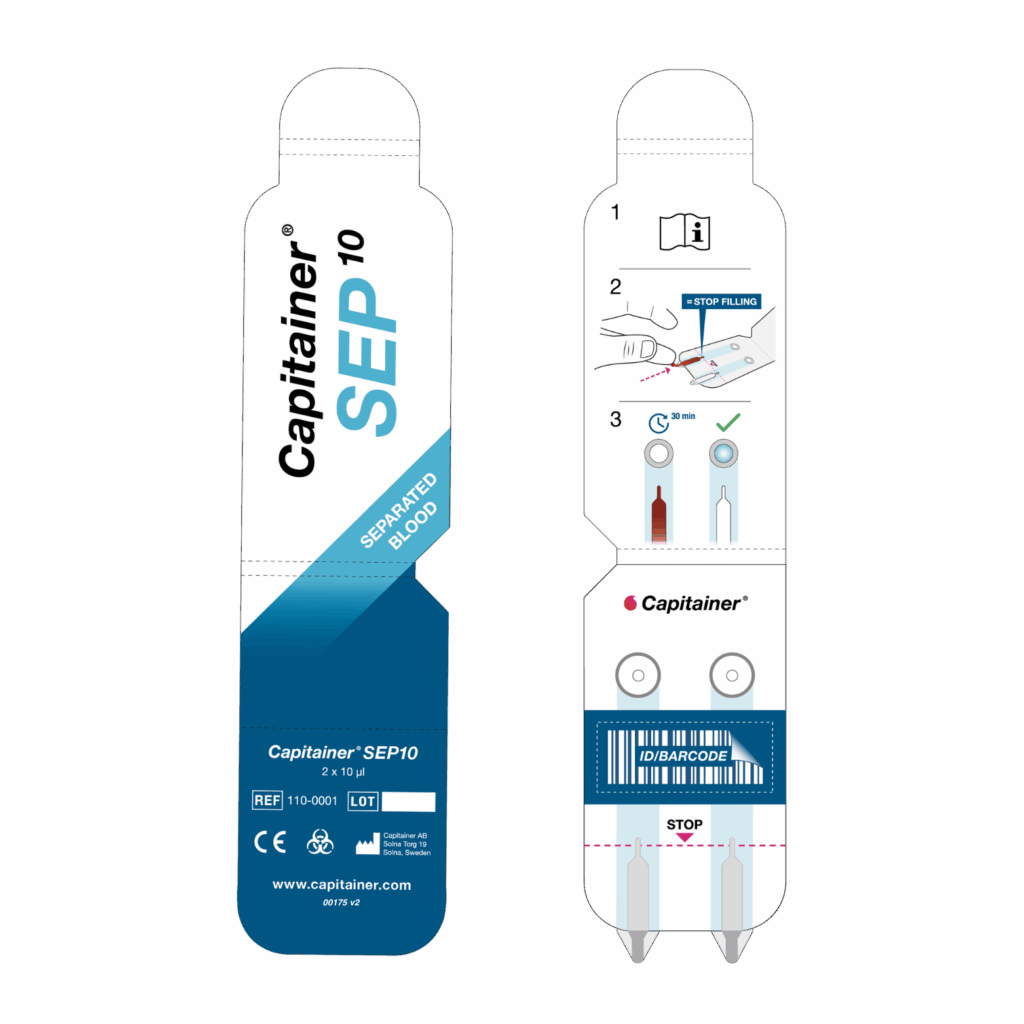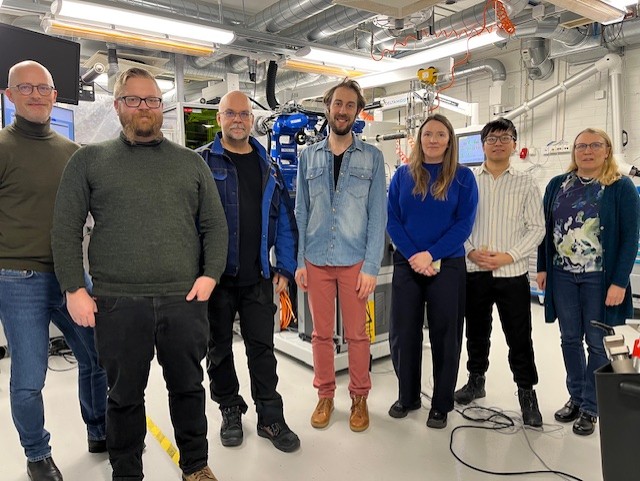Welcome to this month’s update from Capitainer. It’s only been three weeks since our last newsletter – but we already have plenty of news to share!
From product updates to ongoing collaborations and new external initiatives in our field, here’s a look at what’s been happening across the Capitainer community

✔️ Updated SEP10: Now CE-Marked & FDA Class I Registered
Our plasma sampling device Capitainer® SEP10 is now updated with several aspects improving user friendliness and officially CE-marked and FDA Class I registered.
SEP10 separates blood cells and plasma at the point of collection, without centrifugation – and meters an exact, dried plasma-like sample suitable for stable transport at ambient temperature.
For example, SEP10 is already being used in Alzheimer’s biomarker research, where the device can enable new approaches to remote and scalable testing. Read more here.

🧪 UK Research Study Uses Capitainer for Home Lead Testing
A new large-scale study led by Northumbria University is launching in Leeds to screen young children for lead exposure – using home-based finger-prick sampling with Capitainer’s device.
The project, funded by UK Research and Innovation (UKRI), aims to build a cohort of 500 children aged 1–6 and evaluate how remote sampling can improve detection of lead exposure.
This marks an important step toward more accessible, family-friendly testing methods for environmental health.
👉 Read the full press release here
Greetings from Finland!
This week, our R&D Manager Anna Ohlander, Production & Regulatory Manager Per Lidö, and Development Engineer Peng Zhang travelled to VTT (Technical Research centre of Finland) in Oulu, Finland, to work with colleagues from VTT and BeFC (Bioenzymatic Fuel Cells) on the first prototype of a plasma sampling card with integrated time stamp developed in the EU funded project SusFE.
At MEDICA, VTT is showcasing early demonstrations of the integrated microsampling concept that combine Capitainer technology with printed electronics and sustainable sensor components developed within the project.
👉 Learn more about the SusFE Project here

Stay Connected
Follow us on [LinkedIn] for updates, insights, and new research on microsampling and decentralized care.
If you have any questions or would like to connect with our team, feel free to reach out!
